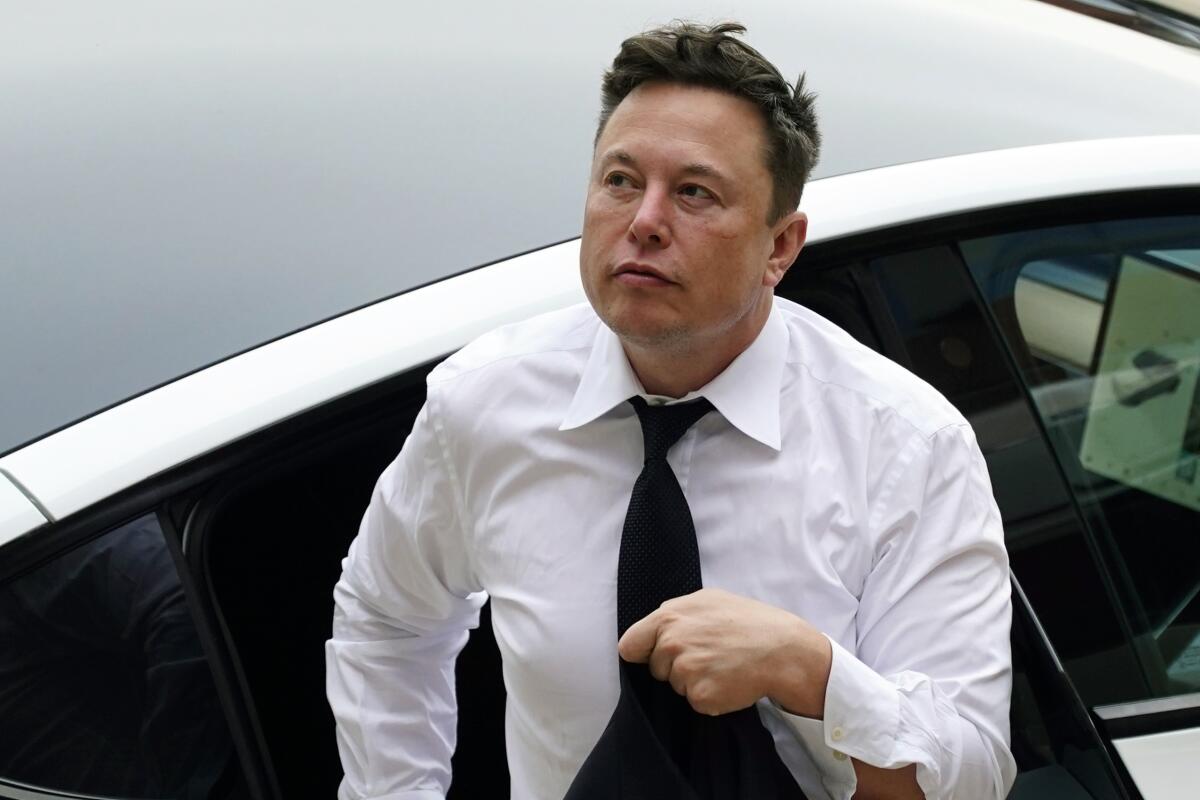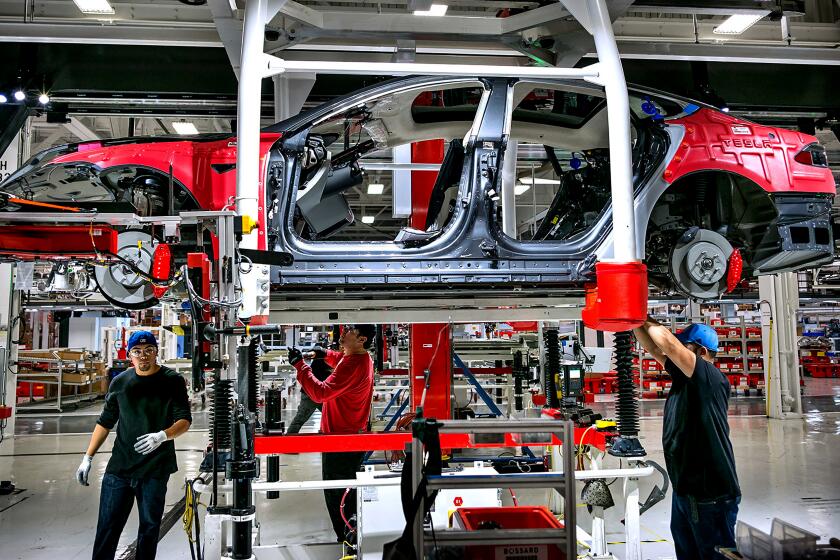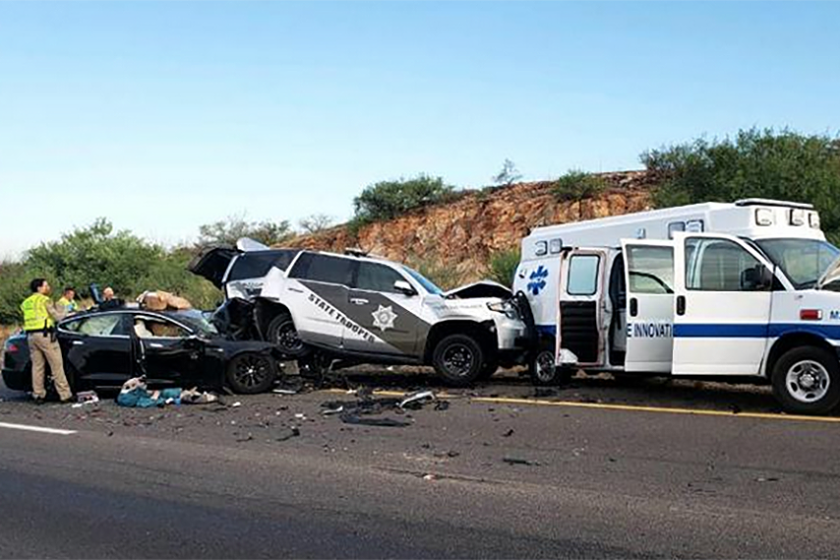Life after Elon Musk: Tesla’s board takes heat over CEO succession planning

Tesla’s board of directors is facing mounting pressure to prove just how prepared it is for the potential loss of Elon Musk, the erratic chief executive largely behind the breakneck rise and dramatic fall in the company’s valuation.
Karen Robertsdottir, a shareholder in Reykjavik, Iceland, has submitted a resolution for Tesla investors to vote in May on whether the board should prepare and maintain a key-person risk report. Several other shareholders who wanted to put forward proposals — at least one of which also pertained to Musk — are frustrated with how the company disclosed plans to hold its annual meeting months earlier than in recent years, sparing the directors from even more heat.
If Robertsdottir’s motion makes it onto Tesla’s proxy, it would give investors a tangible way to force Tesla to be more forthcoming about an area of concern that’s been growing since Musk’s takeover of Twitter. The carmaker’s directors designed an unprecedented pay package years ago that seeded the CEO with the means to agree to the $44-billion deal just as social media and technology company shares were beginning to plunge.
Twitter’s strain on Musk’s personal finances — he recently became the first person ever to lose $200 billion of net worth — and his sale of almost $40 billion of Tesla shares amid months of impulsive tweeting have aggrieved several prominent Tesla investors. One accused the board of having been missing in action, while another mixed it up with Musk on the social media service he overpaid for.
Tesla’s investor relations representatives and board chair Robyn Denholm didn’t respond to multiple requests for comment. The electric-car maker disbanded its communications team in 2019.
For Tesla, whose valuation is pinned on its future growth prospects, worries about demand ebbing as interest rates rise represent significant risk.
Tesla shares fell 2.9% on Thursday. The stock has fallen more than 70% since Musk disclosed in early April that he’d taken an initial stake in Twitter.
Robertsdottir shared a copy of the proposal she submitted in the name of Sumtris ehf, the Icelandic limited liability company she leads as CEO. She called for the carmaker with just three named executive officers and no chief operating officer to document processes and procedures for succession of key people and mitigate the financial effect their loss would have.
“Tesla is frequently cited as a prominent example of a company that has so-called key-person risk, due to the prominence of its CEO and the lack of a clear public succession plan or strategy to ameliorate the impacts of his loss,” she wrote. “At present, Tesla shareholders can have little confidence that said risk has been at all ameliorated.”
Tesla directors including Denholm and James Murdoch were pressed on their approach to governance in November during a trial over whether the board exercised independence from Musk when drawing up his 2018 compensation package that’s potentially worth $55 billion. The son of media baron Rupert Murdoch said Musk had identified a potential CEO successor in recent months, though he wouldn’t say who it was.
It’s unclear whether a shareholder resolution on compensation will make it onto the agenda for Tesla’s May 16 annual meeting. The company announced the timing of the event on page 57 of its 60-page 10-Q filing in October and set a Dec. 22 deadline for submitting resolutions.
Tulipshare, a United Kingdom-based activist investing platform for retail traders, planned to file a say-on-pay proposal for Musk’s compensation to be linked to environmental, social and governance metrics, but was among several shareholders that missed Tesla’s disclosure 10 weeks ago.
Around the same time that Tesla stopped self-reporting Autopilot safety stats, its crash rates were soaring far higher than those of its competitors.
“As the new owner of one of the largest social media networks globally, Musk has absolutely no excuse for this move,” said Antoine Argouges, Tulipshare’s founder and CEO. “Instead, Tesla chose to do the bare minimum.”
Tesla often uses more means than just regulatory filings to make announcements about events, including annual meetings. This week, it issued an 8-K filing with U.S. Securities and Exchange Commission, a news release and tweet about plans for a March 1 investor day. In a tweet from its verified account in March of last year, the company said that it would ask investors to authorize additional shares to enable a second stock split in two years, then followed the post up with an 8-K filing.
Meredith Benton, the founder of an environmental, social and governance-focused consulting firm who’s been involved in shareholder activism for 20 years, said she’s never seen a company announce an annual meeting date the way Tesla did.
“I don’t know anyone who filed. I know of several who intended to,” the founder of Whistle Stop Capital said, referring to shareholder proposals. “Tesla’s investor relations team knows very well which investors have concerns with the company and could have let people know as a courtesy. An 8-K press release would have been more appropriate.”
Several corporate governance experts said Tesla did what the SEC legally requires by disclosing the date of its annual meeting in its 10-Q quarterly filing.
“I don’t have a whole lot of sympathy for the activists’ complaints,” said Jill Fisch, a University of Pennsylvania professor who teaches corporate-law classes. “If the annual meeting change is in the securities disclosure, Tesla met its obligations.”
Others were more amenable to shareholders’ gripes.
“It’s the kind of thing that a board that knows it’s going to come under shareholder pressure tries to do to avoid uncomfortable questions,” said Brian Quinn, a corporate law professor at Boston College Law School. “It’s a short-term strategy, but it won’t hold back unhappy shareholders when the activists inevitably come calling for the Tesla board. I suspect that day isn’t far off.”
James McRitchie of Elk Grove, Calif., owns a Tesla Model S and has been a shareholder since 2012. He’s put forward seven proposals over the years, including for the carmaker to declassify its board and adopt a simple-majority voting standard. This year, he was planning to file a resolution for disclosure of political spending, but missed the filing deadline.
Tesla disclosed the meeting and filing deadline dates in a section of the 10-Q under an “other information” heading, McRitchie noted. “How much more buried can you get?”








